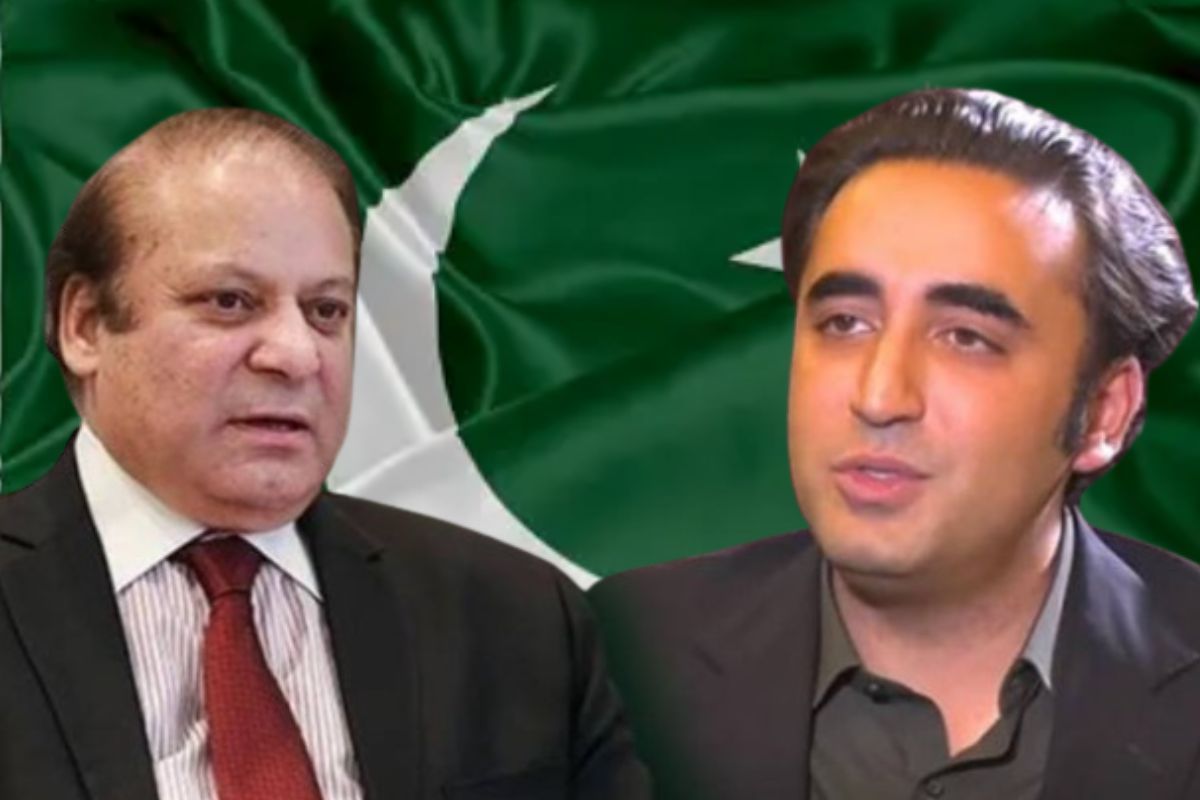NEW DELHI: Pakistan just concluded its 12th national general elections on Thursday, February 8, to select a new government, amidst numerous crises in the nuclear-armed nation with a population of 241 million. According to The News, Nawaz Sharif’s Pakistan Muslim League Nawaz is expected to lead as the largest party, with Bilawal Bhutto Zardari’s Pakistan Peoples Party likely to secure second place, followed by Imran Khan’s Pakistan Tehreek-e-Insaf and other parties.
As ex-Prime Minister Imran Khan continues to be incarcerated, Nawaz Sharif is expected to take the forefront as the leading candidate for the prime ministerial position. Khan’s Pakistan Tehreek-e-Insaf (PTI) members are running in the elections as independent candidates following the Supreme Court’s affirmation of the election commission’s ruling to strip PTI of its signature election symbol, the cricket ‘bat’.
Also Read: Meet Varun Ghosh: Australian Senator sworn in on Bhagavad Gita
Sharif, aged 74, is vying for the prime ministerial position for an unprecedented fourth time in the upcoming Thursday’s election. The competition also features Bilawal Bhutto-Zardari’s PPP, with him designated as the party’s nominee for the prime ministerial role.
Regardless of the election outcome on February 8, the victor will face significant challenges ahead, given the struggling economy and worsening security conditions. Pakistan narrowly avoided default last year with a $3 billion short-term loan from the International Monetary Fund (IMF). Economic analysts suggest that the incoming government will likely require an immediate new IMF programme with stricter conditions.
Also Read: Meet El Salvador’s President Nayib Bukele: ‘World’s coolest dictator’
Pakistan’s long-standing battle against terrorism, spanning over two decades, is facing setbacks as insurgents have regrouped since 2021 following the rise of the Afghan Taliban. The incoming government will encounter greater challenges in addressing the militancy posed by the outlawed Tehreek-i-Taliban Pakistan and Baloch nationalists.
Recent tensions have escalated along Pakistan’s eastern border, with Islamabad accusing India of orchestrating an assassination campaign within Pakistan—a claim vehemently denied by New Delhi. India firmly rebuffed Pakistan’s allegations of providing evidence linking Indian agents to the targeted killings of two Pakistani citizens on January 25, dismissing them as “false and malicious anti-India propaganda.”
India’s perspective on the 2024 Pakistan election?
India, slated to hold Lok Sabha elections by May, anticipates that a resurgence of the Narendra Modi-led government with a substantial mandate could add complexities to Pakistan’s incoming administration.
Also Read: What is cipher case leading to Imran Khan’s 10-year jail term?
India has consistently expressed apprehensions regarding Pakistan’s continued backing of terrorism, leading the Narendra Modi-led government to adopt a more stringent approach toward national security issues.
In recent remarks, Nawaz Sharif has displayed a readiness to communicate with India and has acknowledged the neighbouring nation’s global advancements. Nonetheless, his party’s manifesto asserts a dedication to seeking peace with India only if New Delhi retracts its decision to revoke Article 370, which provided special status to Jammu and Kashmir.
Also Read: Do we want pseudo-military organisation: Iran expert on Pakistan’s BRICS aspirations
According to Moneycontrol, a notable success of PM Modi’s foreign policy has been the relegation of Pakistan in India’s diplomatic priorities, a tactic that has yielded positive results to date. This strategy enables India to remain indifferent to changes in leadership in Islamabad while staying true to the principle articulated by former Prime Minister Atal Bihari Vajpayee: “We can change our friends but not our neighbours.”











